Introduction
In the modern workplace, creating a productive and visually appealing environment is crucial for businesses. Smart glass offers a revolutionary solution for office spaces by combining functionality, aesthetics, and advanced technology. This blog explores the benefits and applications of smart glass in office settings, highlighting its ability to enhance privacy, improve energy efficiency, and create a dynamic workspace.
Benefits of Smart Glass in Offices
Privacy Control
Smart glass allows for on-demand privacy control in office spaces. With a simple switch or automated controls, the glass can change from transparent to opaque, ensuring confidentiality during meetings, presentations, or sensitive discussions. This feature promotes an open and collaborative work environment while respecting the need for privacy.
Energy Efficiency
Energy efficiency is a top priority for businesses seeking to reduce operating costs and minimise their environmental footprint. Smart glass helps achieve these goals by regulating the amount of natural light entering the office space. By adjusting the tint of the glass, it can control glare and solar heat gain, reducing the need for artificial lighting and air conditioning. This not only saves energy but also creates a comfortable working environment.
Enhanced Aesthetics
Smart glass adds a touch of sophistication and modernity to office interiors. Its seamless transition from transparent to opaque creates a visually striking effect, making a statement and enhancing the overall design of the space. With customizable options, smart glass can be integrated into various office elements such as conference room partitions, office doors, or even as a unique feature wall.
Applications of Smart Glass in Offices
Conference Rooms
Conference rooms are often equipped with smart glass to provide privacy during meetings and presentations. By instantly switching to an opaque state, smart glass ensures confidential discussions and maintains a professional atmosphere. It also allows for greater flexibility in utilising the space, as it can be transformed into an open area when not in use.
Executive Offices
Smart glass installation in executive offices offers executives the ability to control their privacy without compromising natural light. It creates an exclusive and sophisticated workspace while maintaining an open connection with the rest of the office. Executives can easily switch the glass to an opaque state for private meetings or sensitive work.
Collaboration Areas
Collaboration areas, such as open office spaces or breakout rooms, can benefit from smart glass partitions. These partitions provide the flexibility to create private meeting spaces within the larger open area. By instantly transforming the glass to an opaque state, employees can engage in focused discussions or brainstorming sessions without distractions.
Reception Areas
The reception area is the face of an office, representing the company’s image and creating the first impression for visitors. Smart glass in reception areas adds a modern and high-tech touch, creating an inviting and dynamic entrance. It can also be utilised for privacy purposes, ensuring confidentiality during client meetings or sensitive interactions.
Installation Process of Smart Glass in Offices
The installation process of smart glass in offices involves the following steps:
Assessment and Consultation
During the initial phase, a professional team assesses the office space and consults with the stakeholders to determine the specific goals and requirements. This includes evaluating privacy needs, energy efficiency targets, and design preferences.
Customization and Design
Based on the assessment, smart glass panels are customised to fit the office space’s specific dimensions and design requirements. This may involve selecting the appropriate type of smart glass, such as electrochromic or SPD, and considering any additional features or functionalities.
Professional Installation
Experienced technicians install the smart glass panels with precision, ensuring a seamless integration into the office environment. They handle electrical connections, if required, and conduct thorough testing to ensure optimal functionality.
Maintenance and Care of Smart Glass in Offices
To maintain the performance and longevity of smart glass in office settings, the following maintenance and care tips should be followed:
Regular Cleaning
Clean smart glass surfaces using a non-abrasive, lint-free cloth and a mild, ammonia-free glass cleaner. Regular cleaning removes fingerprints, dust, and other particles that may affect the transparency and visual appeal of the glass.
Avoid Harsh Chemicals
Avoid using harsh chemicals or abrasive cleaning agents, as they can damage the smart glass surface or its coating. Stick to gentle cleaning solutions and soft materials to ensure the glass remains in optimal condition.
Preventive Maintenance
Periodically inspect the smart glass panels for any signs of damage or malfunction. If any issues are detected, contact a professional technician to address them promptly. Regular maintenance checks can help identify and resolve potential problems before they worsen.
Future Prospects of Smart Glass in Offices
As smart glass technology continues to evolve, its future prospects in office environments look promising. Advancements in materials, improved energy efficiency, and enhanced functionality are expected. The integration of smart glass with other smart office technologies, such as smart lighting and climate control systems, may further optimise energy usage and create more intuitive workspaces.
Conclusion
Smart glass is transforming office spaces by offering privacy control, energy efficiency, and aesthetic enhancements. Its ability to switch between transparent and opaque states provides employees with a dynamic and flexible working environment. As businesses strive for productivity, sustainability, and innovation, smart glass emerges as a cutting-edge solution that combines functionality with visual appeal.
Who We Are
Tecdur is the leading manufacturer of smart glass for the UK and Ireland. Tecdur Switchable Glass provides the best clarity, lowest power consumption and lowest haze currently available. We can offer a wide range of specifications to meet project requirements with our switchable glass, cost is dependent on specification, application and design. Please get in contact with us to discuss further.
Please visit our portfolio for a look at completed projects. Keep up to date on our LinkedIn Showcase page
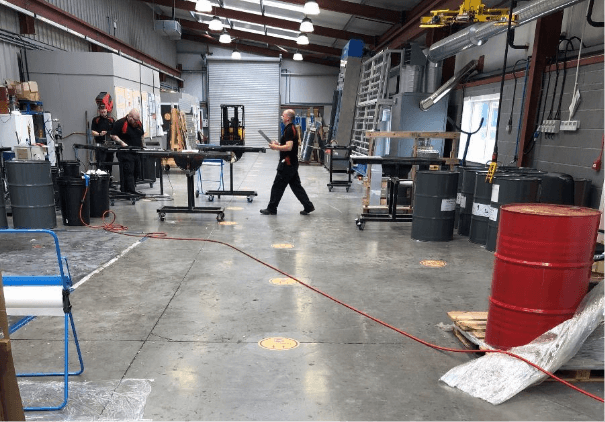
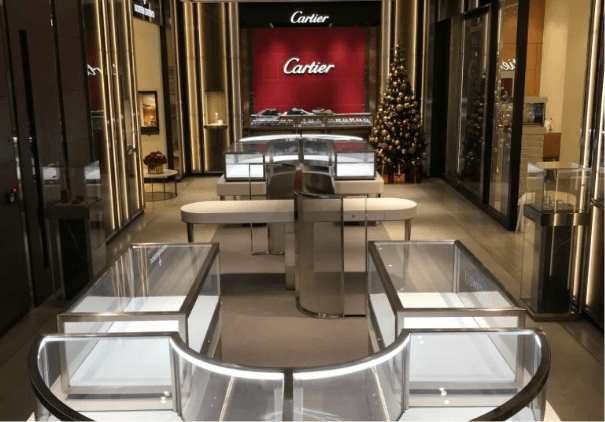
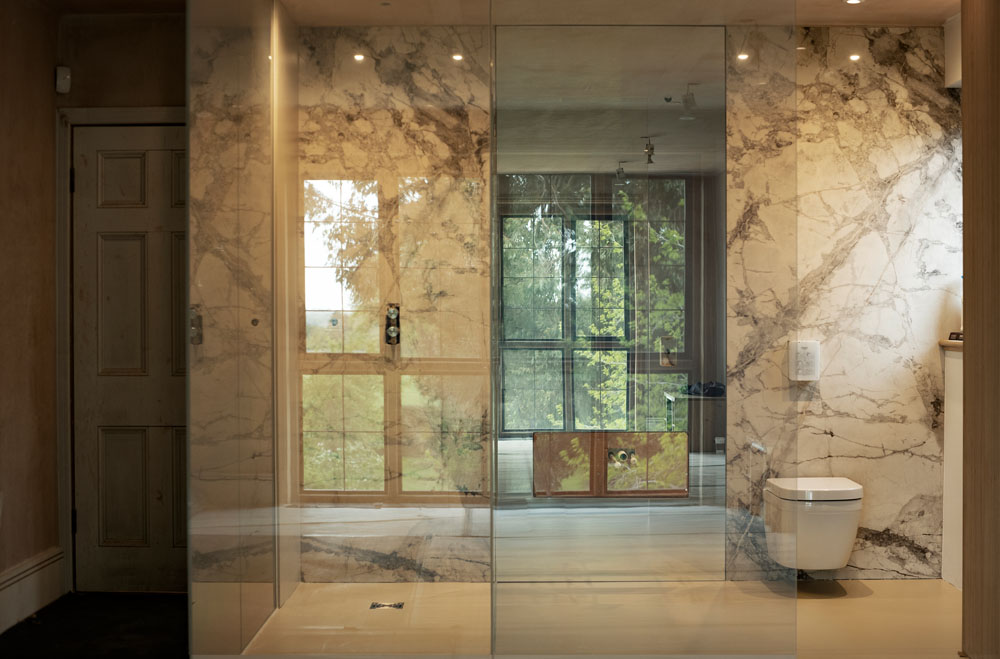
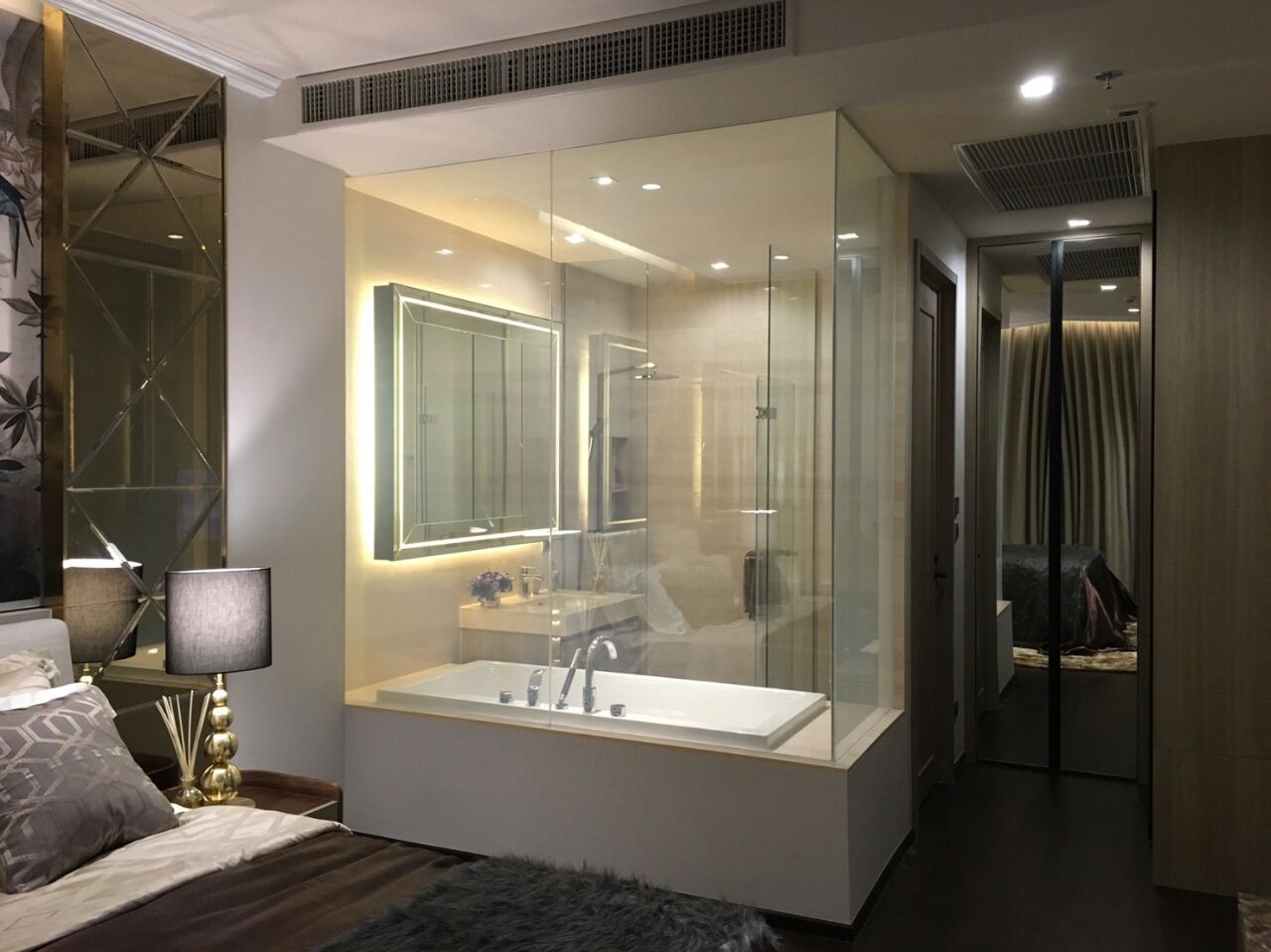
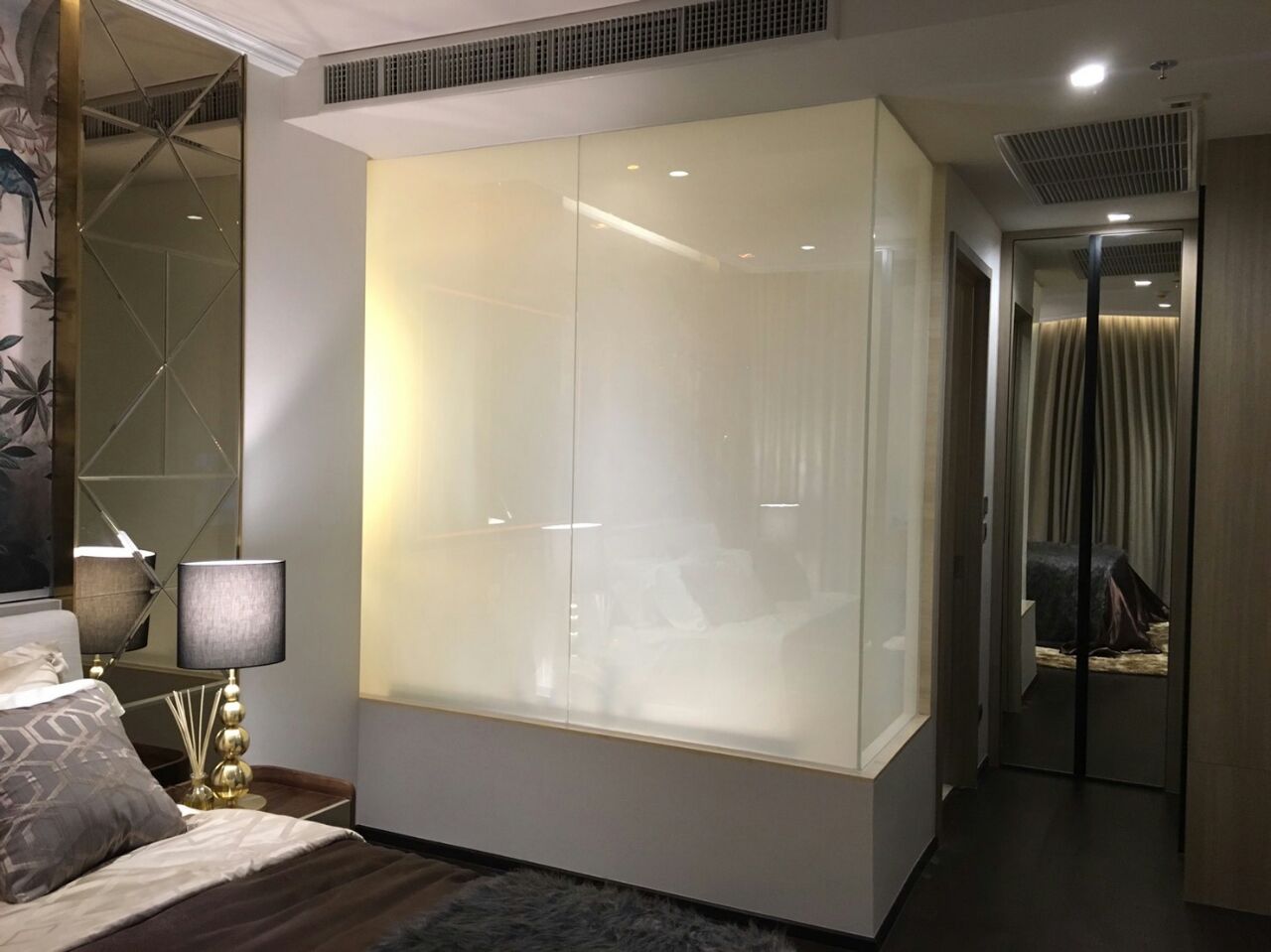
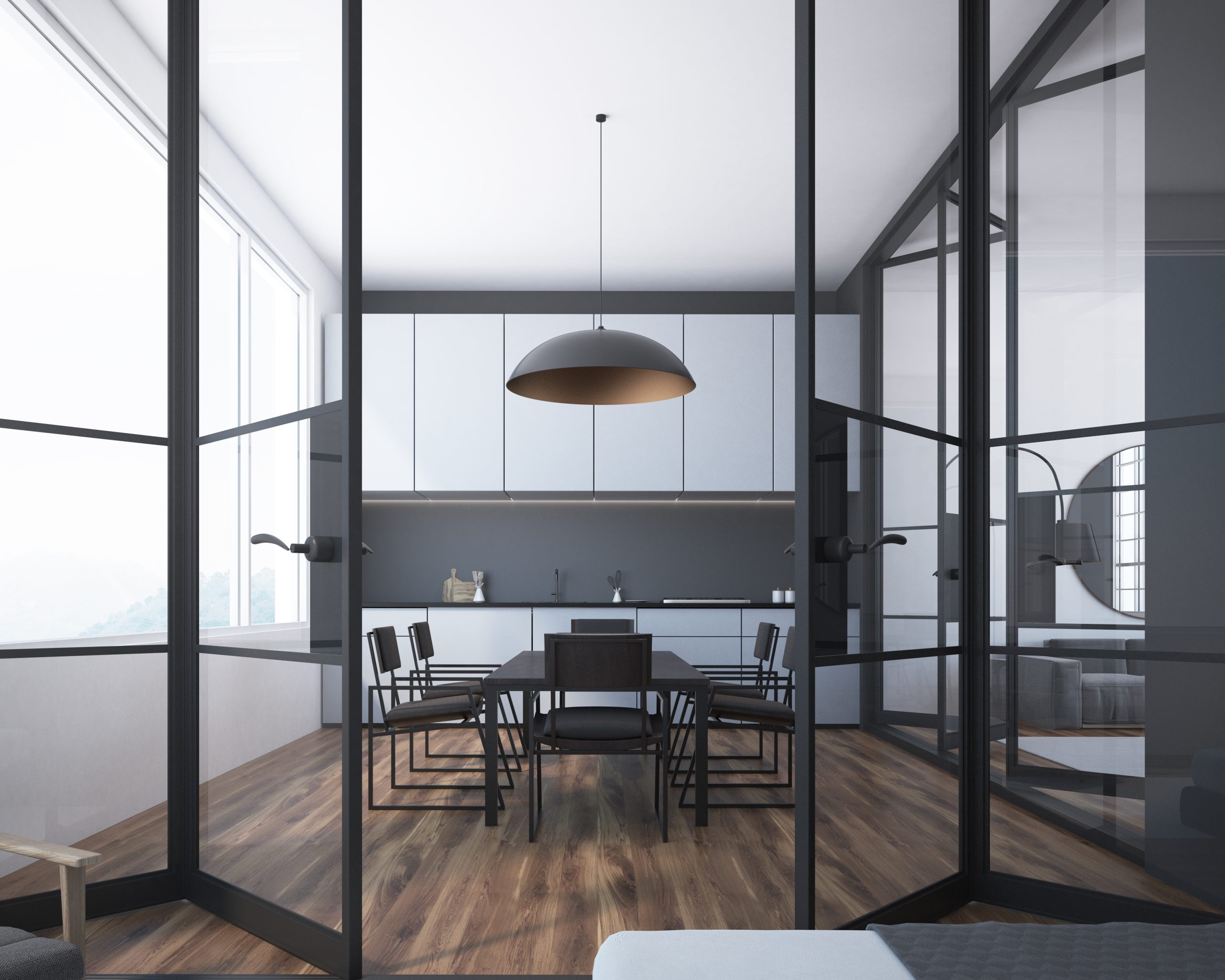
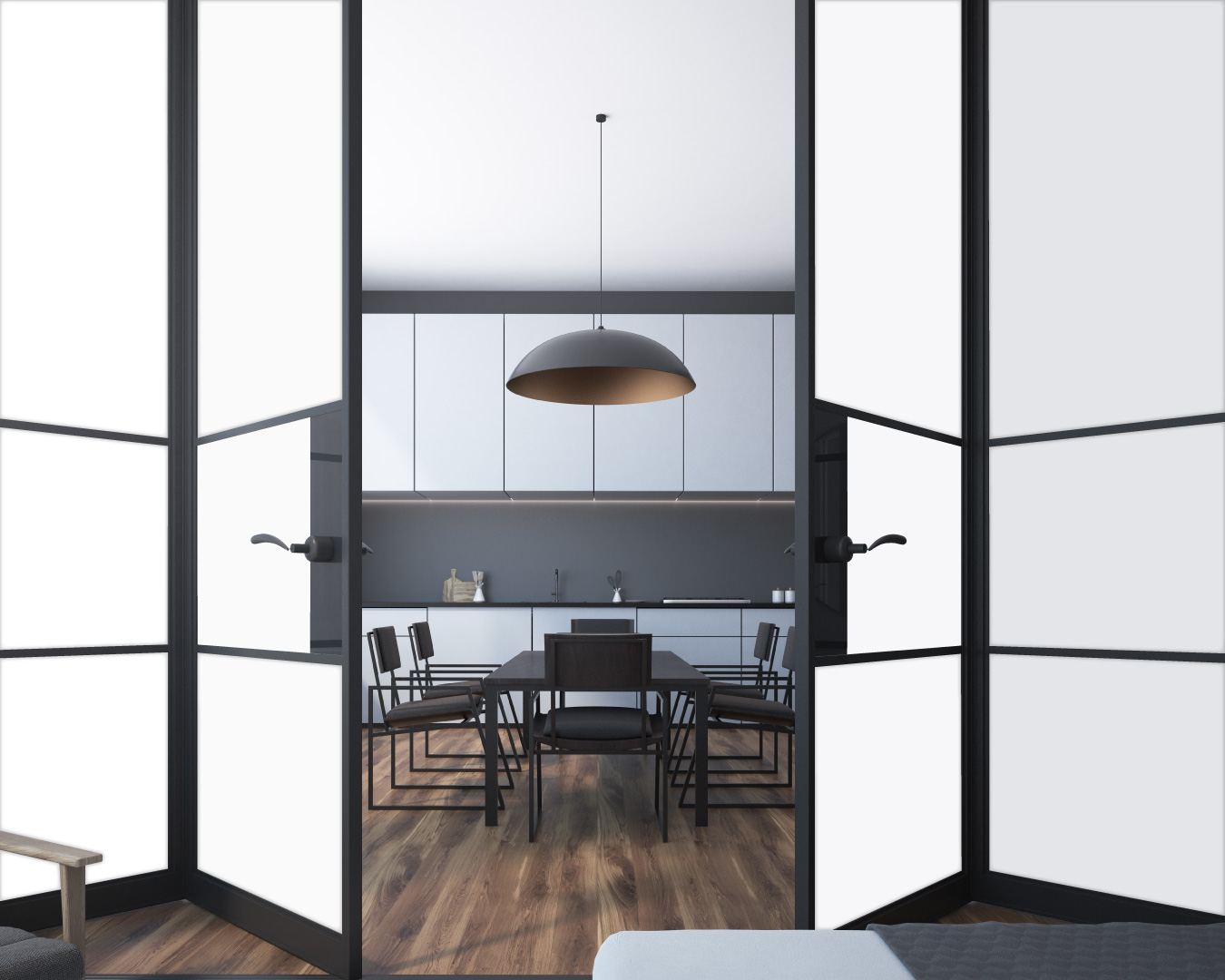
Frequently asked Questions
Our privacy glass works by utilising advanced PDLC (Polymer Dispersed Liquid Crystal) film. When an electrical current is applied, the liquid crystal molecules align, allowing light to pass through, making the glass transparent. When the current is switched off, the molecules mis-align, causing the glass to turn opaque or translucent, providing privacy.
The installation time depends on the size of the project and the complexity of the office space. Generally, it can take a few days to a couple of weeks for a professional installation.
Yes, smart glass can be retrofitted into existing windows. However, it is essential to assess the compatibility and structural integrity of the window frames before installation.
Yes, smart glass can be integrated with automation and smart office systems. It can be synchronised with lighting controls, motion sensors, or other smart technologies to enhance the overall functionality and efficiency of the office space.
Yes, smart glass panels can be controlled individually or grouped together for shared office spaces. This allows employees to adjust the privacy level according to their specific needs and preferences.
No, smart glass panels only require electricity during the switching process from transparent to opaque or vice versa. Once the desired state is achieved, they can maintain that state without continuous power supply.




